As a student, the prospect of choosing a career path can feel daunting. With so many options available and numerous factors to consider, it’s easy to feel overwhelmed. However, by taking a strategic approach and leveraging available resources, you can navigate this process with confidence and clarity. In this guide, we’ll explore practical steps to help students discover their career paths and set themselves up for success in the professional world.
The journey to finding the right career begins with understanding yourself – self-reflection. Take the time to reflect on your interests, values, and strengths. What subjects do you enjoy studying? What activities bring you joy and fulfillment? Consider your personal values and the type of work environment where you thrive. Self-assessment tools, career quizzes, and guidance counselors can also provide valuable insights into your personality traits and preferences.
Once you have a better understanding of yourself, it’s time to explore potential – research career paths. Research different industries, job roles, and companies to identify opportunities that align with your interests and goals. Take advantage of online resources, such as career websites, industry reports, and professional networking platforms, to gather information about various career paths and the skills required for success.
Hands-on experience can provide invaluable insights into potential career paths and help you develop relevant skills. Look for internship programs, part-time jobs, or volunteer opportunities in fields you’re interested in. These experiences not only allow you to test-drive different career paths but also build your resume and network with professionals in your chosen field.
Don’t be afraid to reach out to mentors, teachers, or professionals in your desired field for guidance and advice. They can offer valuable insights, share their experiences, and provide guidance on navigating the job market. Joining student organizations, attending career workshops, and participating in networking events are also great ways to connect with mentors and expand your professional network.
Regardless of the career path you choose, certain skills are universally valuable. Focus on developing transferable skills such as communication, problem-solving, teamwork, and adaptability. These skills not only enhance your employability but also prepare you to succeed in a variety of roles and industries.
Once you’ve explored your options and identified your career interests, set specific goals to work towards. Whether it’s obtaining relevant certifications, gaining additional experience, or building a professional portfolio, break down your goals into actionable steps and create a timeline for achieving them. Stay focused and motivated, and don’t be afraid to adjust your goals as you gain new insights and experiences.
Finding the right career path is a journey filled with twists and turns. Be prepared to adapt to changing circumstances and consider alternative paths if necessary. Stay resilient in the face of setbacks and challenges, and remember that setbacks are opportunities for growth and learning. With persistence, determination, and a positive attitude, you’ll navigate the maze of career exploration and emerge with a clear sense of direction and purpose.
Finding your career path as a student is an exciting and empowering journey. By engaging in self-exploration, researching career options, gaining practical experience, seeking guidance, developing transferable skills, setting goals, and embracing flexibility, you can navigate this process with confidence and clarity. Remember that your career journey is unique to you, and each experience, whether success or setback, contributes to your growth and development. Stay curious, stay open-minded, and trust that with persistence and determination, you’ll find a career path that aligns with your passions and aspirations.








Leave A Comment